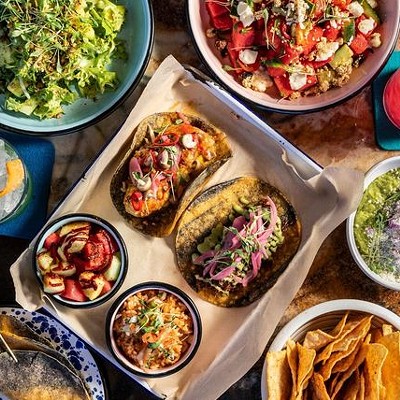Hanna Raskin, formerly the food critic for two of our sister papers, just published Yelp Help: How to Write Great Online Restaurant Reviews. The book's a how-to guide for contributors to sites such as our own Voice Places, where you can weigh in with your opinions of local restaurants. We asked her to offer up a few pointers.
If you spend enough time reading online restaurant reviews, you'll come across plenty of laughable examples of eaters assailing pasta shops for not accommodating their gluten-free diets and attacking pho joints for offering up cheap silverware and paper napkins. But you'll also find well-intentioned reviewers openly struggling with how to best put their restaurant experience into words: The phrase "I don't know how to say this" shows up in online reviews almost as frequently as "da bomb."
As a former food critic for the Dallas Observer and Seattle Weekly, I fully appreciate the difficulties of restaurant reviewing. But I also firmly believe that our culinary culture would be tremendously enhanced if users of online reviewing sites such as Yelp, Urbanspoon, TripAdvisor and Voice Places had the tools they needed to produce valuable write-ups of their meals. That's why I recently wrote Yelp Help: How to Write Great Online Restaurant Reviews, a comprehensive guide to reporting and writing about restaurant visits.
The book's 80 pages cover in detail topics such as writing with voice and the history of food criticism, since online reviewers are heirs to that vaunted legacy. The heart of the book, though, concerns the errors that commonly crop up on online review sites and how contributors can avoid making them. Here's a list of do's and don't's for all you civilians out there.
DO reveal your preferences and biases.
In addition to having the advantage of an eating budget and entire work week to devote to reviewing, professional critics can take solace in knowing their readers are familiar with their likes and dislikes. They don't have to explain their background every time they size up a steakhouse. But most online reviewers can't count on a devoted group of followers to intuit what they know about bulgogi and barbecue. While it's important to not waste too many words on your ego -- you're writing a review, not a memoir -- it's equally critical to disclose anything that would color your opinion. Do you refuse to eat raw fish? Are you persuaded that nobody but your Aunt Sylvia can make goulash? Say so.
DON'T confuse your experience with expertise.
Your opinion of a Chinese restaurant in Buffalo doesn't carry extra weight because your mother was born in Beijing or because you went to school in San Francisco. While you might very well view the restaurant differently than eaters from elsewhere, knowing your mother's cooking isn't the same as understanding the whole of a cuisine -- and authenticity may not be the restaurant's aim, anyhow. Just as in offline life, try not to show off.
DO report facts that aren't readily available online.
Many restaurants maintain Web sites chock full of objective information, such as drink prices and dress code. But cost and language barriers sometimes prevent restaurant owners from putting together in-depth Web sites. Since very few of these restaurants will ever be chronicled by professional critics, it's up to online restaurant reviewers to fill in the gaps by reporting on the menu, service style, ambience and restaurant design.
DON'T editorialize unnecessarily.
In many cases, restaurants will make choices that don't sit well with you. Maybe the owners store their back stock of placemats in the bathrooms. Perhaps the servers wear overalls. It doesn't really matter what you think, since your screed against waitresses in denim is unlikely to sway a reader who wears jeans every day. Reporting what you observed is far more important than expounding upon your opinion of it.





